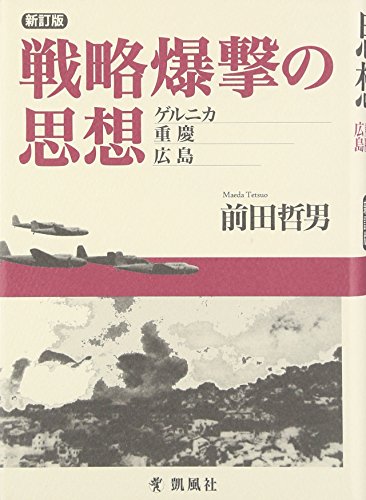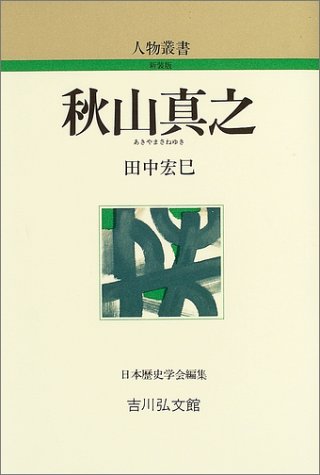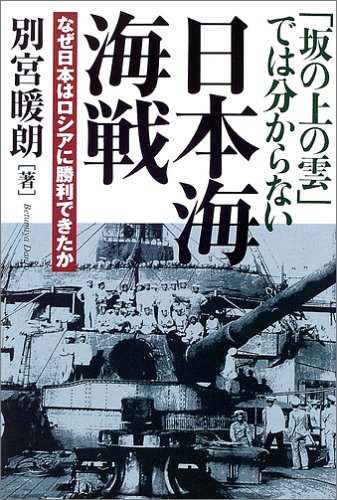- 著者
- 文 純実
- 出版者
- 駿台史学会
- 雑誌
- 駿台史学 (ISSN:05625955)
- 巻号頁・発行日
- no.96, pp.83-116, 1996-01
1 0 0 0 裁かれる「重慶爆撃」 (問い直そう無差別爆撃の非道)
- 著者
- 前田 哲男
- 出版者
- 軍縮市民の会・軍縮研究室
- 雑誌
- 軍縮問題資料 (ISSN:02870177)
- 巻号頁・発行日
- no.308, pp.44-49, 2006-07
1 0 0 0 戦略爆撃の思想 : ゲルニカ、重慶、広島
1 0 0 0 IR 戦後台湾遷占者国家における「外省人」--党国体制下の多重族群社会編試論・その1
- 著者
- 若林 正丈
- 出版者
- 学習院大学東洋文化研究所
- 雑誌
- 東洋文化研究 (ISSN:13449850)
- 巻号頁・発行日
- no.5, pp.121-139, 2003-03
It is a well-known fact that identity politics emerged in Taiwan following its political democratization. Competing notions and discourses concerning the identity of Taiwan's polity are vying for political support. This can be better understood in the context of post-war years, when the Taiwall state was reconstructed as a"settler state"(in Ronald Weitzer's term)by the Chinese Nationalist Party(the Kuomintang:KMT). KMT's retreat to Taiwan after its defeat in the Civil War against the Chinese Communists restructured Taiwan's multi-ethnic society by bringing in a new "ethnic"group, the Mainlanders. The Mainlanders or Waishengren (literally people of outer provinces), who fled with the KMT regime to Taiwan, also monopolized the core positions of the settler state. Although this is a widely recognized fact, academic studies concerning this situation and the role of Waishengren in post-war Taiwan remain limited. This study is a preliminary effort to contribute to the existing researches on Waishengren. It first shows that a deep ethnic division between Waishengren and Benshengren (literally people of this province)was formed as a result of Bensh engren's uprising against the KMT-led Taiwan provincial government, on February 28,1947, and the subsequent harsh suppression which claimed between 180,00 and 28,0001ives(the February 28 1ncident). Based on the demographic data of Waishengren, the study then provides a rough picture of the social outlook of Waishengren during the early years of their settlement in Taiwan.
1 0 0 0 江戸仏教の戒律思想 (一)
- 著者
- 上田 霊城
- 出版者
- 密教研究会
- 雑誌
- 密教文化 (ISSN:02869837)
- 巻号頁・発行日
- vol.1976, no.116, pp.24-40, 1976
1 0 0 0 IR インド仏教の法滅思想(2)初期仏教資料をめぐって
- 著者
- 渡辺 章悟
- 出版者
- 東洋大学文学部
- 雑誌
- 東洋学論叢 (ISSN:03859487)
- 巻号頁・発行日
- no.26, pp.100-85, 2001-03
1 0 0 0 IR 摂関院政期における歴史思想--末代観と末法思想の比較を通して
- 著者
- 森 新之介
- 出版者
- 東北大学文学部日本思想史学研究室
- 雑誌
- 日本思想史研究 (ISSN:03868974)
- 巻号頁・発行日
- no.41, pp.159-181, 2009
1 0 0 0 摂関院政期思想史研究
1 0 0 0 IR 1950年代日中伝統演劇交流に関する考察 : 梅蘭芳を中心として
- 著者
- 袁 英明 Yingming YUAN
- 出版者
- 桜美林大学
- 雑誌
- 桜美林論考. 人文研究 (ISSN:21850690)
- 巻号頁・発行日
- no.5, pp.85-102, 2014-03
1 0 0 0 IR 雷震と京都帝大教授・森口繁治 : 日本留学体験における初期民主・憲政思想の形成
- 著者
- 工藤 貴正
- 出版者
- 愛知県立大学外国語学部
- 雑誌
- 紀要. 地域研究・国際学編 = The Journal of the Faculty of Foreign Studies, Aichi Prefectural University. 愛知県立大学外国語学部 編 (ISSN:13420992)
- 巻号頁・発行日
- no.52, pp.119-141, 2020
1 0 0 0 IR マネタリストのケインズ「一般理論」解釈
- 著者
- 金子 邦彦
- 出版者
- 明治大学社会科学研究所
- 雑誌
- 明治大学社会科学研究所紀要 (ISSN:03895971)
- 巻号頁・発行日
- vol.29, no.2, pp.p399-409, 1991-03
1 0 0 0 IR スペイン・アメリカ・キューバ・フィリピン戦争--海外植民地領有のレトリックと統治の実態
- 著者
- 林 義勝
- 出版者
- 明治大学史学地理学会
- 雑誌
- 駿台史学 (ISSN:05625955)
- 巻号頁・発行日
- no.112, pp.53-90, 2001-03
1 0 0 0 IR 米西戦争におけるスペイン大西洋艦隊の迷走(1)
- 著者
- 石倉 幸雄 Yukio Ishikura
- 出版者
- 国際コミュニケ-ション学会
- 雑誌
- 国際経営・文化研究 (ISSN:13431412)
- 巻号頁・発行日
- vol.10, no.1, pp.29-61, 2005-11
The Spanish-American War started on April 23rd ,1898 and ended on August 12th of the same year, resulting in Spain being defeated. The defeat of this war gave Spain the "disaster of 1898", leaving it much to be reformed,and at the same time accelerated international disintegration of the Old World, the framework of which had been deteriorating since the early 19th century. On July 3rd ,1898 the Spanish Squadron was destroyed by the American Fleet off Sanchago de Cuba. The outcome at Sanchago de Cuba converted general trends of the war to be more favorable to the United States, and Spainユs attitude clearly took a different turn from then on. Spain inaugurated the quest for peace behind the scenes.This article attempts to investigate conditions of the so called the "disaster of 1898" of Spain by analyzing the mutual telegraphic communications between the Naval Ministry of Spain and admiral Cervera, commander in chief of the Spanish Squadron. The squadron set sail on April 7th,1898 from Cadiz for Puerto Rico, and was destroyed in the sea engagement off Sanchago de Cuba.With a good understanding of details of the "disaster of 1898", which would indicate how Spain was then, we will study its cause and effect in a context of Spainユs own history as well as in the historical context of international order.There are two collections of telegraphic communications. One is of Cervera's redaction, and the other is of the Naval Ministry of Spain. We will use mainly the former, and secondarily the latter in order to check if the Cervera's collection might include his political bias because he was well known before the war for his viewpoints in opposition to possible confrontation with the United States.
1 0 0 0 IR 米西戦争におけるスペイン大西洋艦隊の迷走(2)
- 著者
- 石倉 幸雄 Yukio Ishikura
- 出版者
- 国際コミュニケ-ション学会
- 雑誌
- 国際経営・文化研究 (ISSN:13431412)
- 巻号頁・発行日
- vol.10, no.2, pp.47-80, 2006-03
The Spanish-American War started on April 23rd ,1898 and ended on August 12th of the same year, resulting in Spain being defeated. The defeat of this war gave Spain the "disaster of 1898", leaving it much to be reformed,and at the same time accelerated international disintegration of the Old World, the framework of which had been deteriorating since the early 19th century. On July 3rd ,1898 the Spanish Squadron was destroyed by the American Fleet off Sanchago de Cuba. The outcome at Sanchago de Cuba converted general trends of the war to be more favorable to the United States, and Spain's attitude clearly took a different turn from then on. Spain inaugurated the quest for peace behind the scenes.This article attempts to investigate conditions of the so called the "disaster of 1898" of Spain by analyzing the mutual telegraphic communications between the Naval Ministry of Spain and admiral Cervera, commander in chief of the Spanish Squadron. The squadron set sail on April 7th,1898 from Cadiz for Puerto Rico, and was destroyed in the sea engagement off Sanchago de Cuba.With a good understanding of details of the "disaster of 1898", which would indicate how Spain was then, we will study its cause and effect in a context of Spain's own history as well as in the historical context of international order.There are two collections of telegraphic communications. One is of Cervera's redaction, and the other is of the Naval Ministry of Spain. We will use mainly the former, and secondarily the latter in order to check if the Cerveraユs collection might include his political bias because he was well known before the war for his viewpoints in opposition to possible confrontation with the United States.
1 0 0 0 IR 米西戦争とスペイン財政
- 著者
- 石倉 幸雄 Yukio Ishikura
- 出版者
- 国際コミュニケ-ション学会
- 雑誌
- 国際経営・文化研究 (ISSN:13431412)
- 巻号頁・発行日
- vol.13, no.1, pp.19-35, 2008-11
This article attempts to evaluate historically the result of the Spanish-American War in two contexts. One is in the history of Spain and the other is in the historical course of deterioration of the Old World.In the first context this article tries to calculate the financial burden due to the Paris Peace Conference held by the two nations and to study how unfavorable effects the burden had on the subsequent economic course of Spain. In the second one this article attempts to prove, by analyzing financial policy, rules and practices of wartime Spain, the assumption that Spanish style of thinking and form of behavior had been based on the order of the Old World. If the assumption is proved, it follows that the defeat of Spain could be considered not only to break down the Spanish values but also to accelerate disintegration and deterioration of the order of the Old World.
1 0 0 0 アメリカにおける秋山真之
1 0 0 0 OA 米西戦争におけるスペイン大西洋艦隊の迷走(2)
- 著者
- 石倉 幸雄 Yukio Ishikura
- 雑誌
- 国際経営・文化研究 = Cross-cultural business and cultural studies (ISSN:13431412)
- 巻号頁・発行日
- vol.10, no.2, pp.47-80, 2006-03-01
The Spanish-American War started on April 23rd ,1898 and ended on August 12th of the same year, resulting in Spain being defeated. The defeat of this war gave Spain the "disaster of 1898", leaving it much to be reformed,and at the same time accelerated international disintegration of the Old World, the framework of which had been deteriorating since the early 19th century. On July 3rd ,1898 the Spanish Squadron was destroyed by the American Fleet off Sanchago de Cuba. The outcome at Sanchago de Cuba converted general trends of the war to be more favorable to the United States, and Spain's attitude clearly took a different turn from then on. Spain inaugurated the quest for peace behind the scenes.This article attempts to investigate conditions of the so called the "disaster of 1898" of Spain by analyzing the mutual telegraphic communications between the Naval Ministry of Spain and admiral Cervera, commander in chief of the Spanish Squadron. The squadron set sail on April 7th,1898 from Cadiz for Puerto Rico, and was destroyed in the sea engagement off Sanchago de Cuba.With a good understanding of details of the "disaster of 1898", which would indicate how Spain was then, we will study its cause and effect in a context of Spain's own history as well as in the historical context of international order.There are two collections of telegraphic communications. One is of Cervera's redaction, and the other is of the Naval Ministry of Spain. We will use mainly the former, and secondarily the latter in order to check if the Cerveraユs collection might include his political bias because he was well known before the war for his viewpoints in opposition to possible confrontation with the United States.
1 0 0 0 OA 米西戦争とスペイン財政
- 著者
- 石倉 幸雄 Yukio Ishikura
- 雑誌
- 国際経営・文化研究 = Cross-cultural business and cultural studies (ISSN:13431412)
- 巻号頁・発行日
- vol.13, no.1, pp.19-35, 2008-11-01
This article attempts to evaluate historically the result of the Spanish-American War in two contexts. One is in the history of Spain and the other is in the historical course of deterioration of the Old World.In the first context this article tries to calculate the financial burden due to the Paris Peace Conference held by the two nations and to study how unfavorable effects the burden had on the subsequent economic course of Spain. In the second one this article attempts to prove, by analyzing financial policy, rules and practices of wartime Spain, the assumption that Spanish style of thinking and form of behavior had been based on the order of the Old World. If the assumption is proved, it follows that the defeat of Spain could be considered not only to break down the Spanish values but also to accelerate disintegration and deterioration of the order of the Old World.



